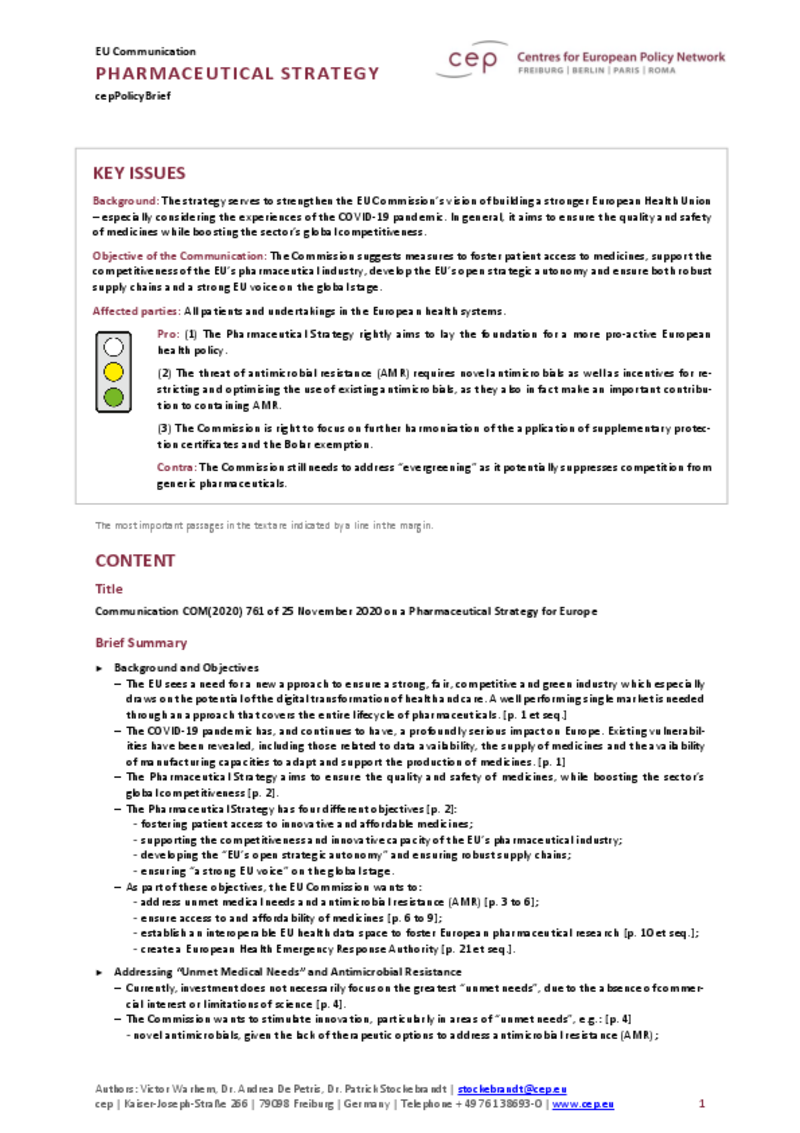
Consumer & Health
Pharmaceutical Strategy for Europe (cepPolicyBrief COM2020_761)
cepPolicyBrief
"The threat of antimicrobial resistance (AMR) requires new antimicrobials. The COVID-19 pandemic has shifted the health policy focus. However, the fight against AMR remains one of the top priorities for global public health," warns cep health expert Patrick Stockebrandt. "Incentives to restrict and optimise the use of existing antimicrobials represent an important contribution to containing AMR," says the cep expert.
According to the cep scientists, the new EU Pharmaceutical Strategy rightly aims to lay the foundation for an active European health policy. It primarily addresses issues that require cross-border solutions. With regard to promoting competition, the EU Commission still needs to take a closer look at the issue of "evergreening": "This is important because it may suppress competition from generic pharmaceuticals," Stockebrandt explains. In addition to the Freiburg scientist, cep expert Victor Warhem in Paris and cep expert Andrea De Petris in Rome contributed to the study.
Download PDF
| Pharmaceutical Strategy for Europe (cepPolicyBrief COM2020_761) (publ. 04.06.2021) | 227 KB | Download | |
 | |||



